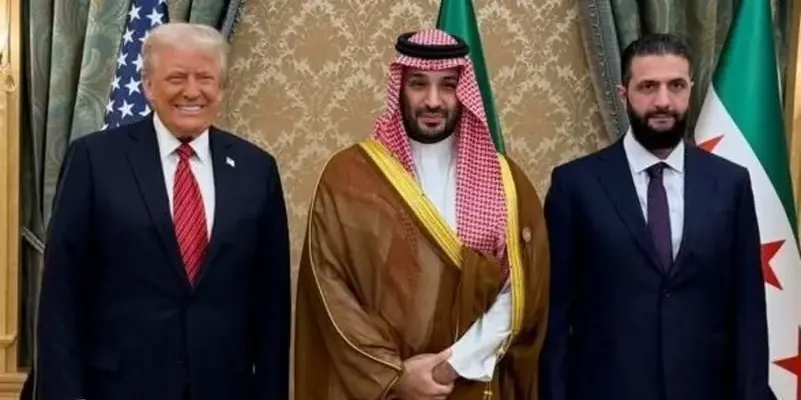Trump’s regional tour reinforces US-GCC ties amid strategic, economic realignments
United States President Donald Trump’s state visit to the Gulf region this week has underscored the renewed strategic alignment between Washington and the Gulf Cooperation Council (GCC), with both sides using the occasion to deepen defence, economic and diplomatic cooperation.
Trump’s three-day tour, which began in Saudi Arabia on May 13 and continues through Qatar and the United Arab Emirates, marks his first official overseas trip since retaking office in January. The visit also coincides with the GCC-US Summit, where Trump and Gulf leaders discussed regional security, trade, and investment strategies.
The Riyadh leg of the trip focused heavily on economic agreements and military cooperation. According to Saudi Crown Prince Mohammed bin Salman, more than $300 billion worth of deals were signed with US companies. These include a $142 billion defence package involving over a dozen firms, $80 billion in technology investments, and $19 billion in energy and aviation deals. Companies involved include Boeing, GE Vernova, Nvidia, and Oracle.
Nvidia and AMD also announced multi-billion-dollar chip deals with Saudi Arabia’s artificial intelligence firm Humain, while Saudi company DataVolt pledged to invest $20 billion in AI data centres and energy infrastructure in the US.
Despite the volume of announcements, Trump pressed Saudi Arabia for up to $1 trillion in investment commitments, far exceeding the current capacity of the Kingdom’s sovereign wealth fund, the Public Investment Fund. Organisers of the investment forum confirmed that 145 deals worth a total of around $300 billion had been signed so far.
In a high-profile speech at the US-GCC summit, Trump declared his intention to explore normalisation of ties with Syria’s new president, Ahmed al-Sharaa, and announced the lifting of US sanctions on Damascus. The move, made at the request of the Saudi Crown Prince and backed by Turkey’s President Recep Tayyip Erdogan, marks a major policy shift and raises questions over the future of US policy towards Iran and Syria.
Trump said lifting the sanctions would give Syria a “fresh start,” and urged Al-Sharaa to sign onto the Abraham Accords and assume responsibility for ISIS detention centres in northeast Syria.
While Syria was brought into the fold, Israel was notably absent from Trump’s itinerary. US officials cited heightened tensions in Gaza and stalled Saudi-Israel normalisation talks as key reasons. Saudi Arabia has insisted that any future recognition of Israel is contingent on a credible two-state solution for Palestine.
In Qatar, Trump is expected to discuss military cooperation and regional mediation efforts. Qatar, which hosts the largest US military base in the Middle East at Al-Udeid, is also playing a key role in Gaza ceasefire negotiations.
The UAE leg of the trip will focus on economic collaboration, particularly in advanced technologies. In March, UAE National Security Adviser Tahnoon bin Zayed Al Nahyan committed $1.4 trillion in US investments over the next decade in sectors such as semiconductors, AI, and energy. Trump is also expected to reverse Biden-era export restrictions on AI and microchip technology to the UAE.
The GCC countries are among the top arms buyers globally. From 2020 to 2024, Saudi Arabia and Qatar each accounted for 6.8% of global arms imports, while the UAE accounted for 2.6%. The US remains the primary supplier for all three.
Bilateral trade between the US and GCC states exceeded $180 billion in 2024, and foreign direct investment flows remain strong. In 2023, UAE investment stock in the US totalled $35 billion, while Saudi Arabia’s stood at $9.6 billion and Qatar’s at $3.3 billion, according to US Department of Commerce data.
As Trump continues his Gulf tour, US-GCC relations appear to be entering a new phase, driven by transactional diplomacy, regional recalibration, and a shared interest in stability.
While questions remain over the durability of these partnerships and the broader implications for regional peace, the volume of agreements and strategic commitments point to a deepening alignment, one increasingly shaped by economics, security, and technology.

Muhammad Ali Bandial